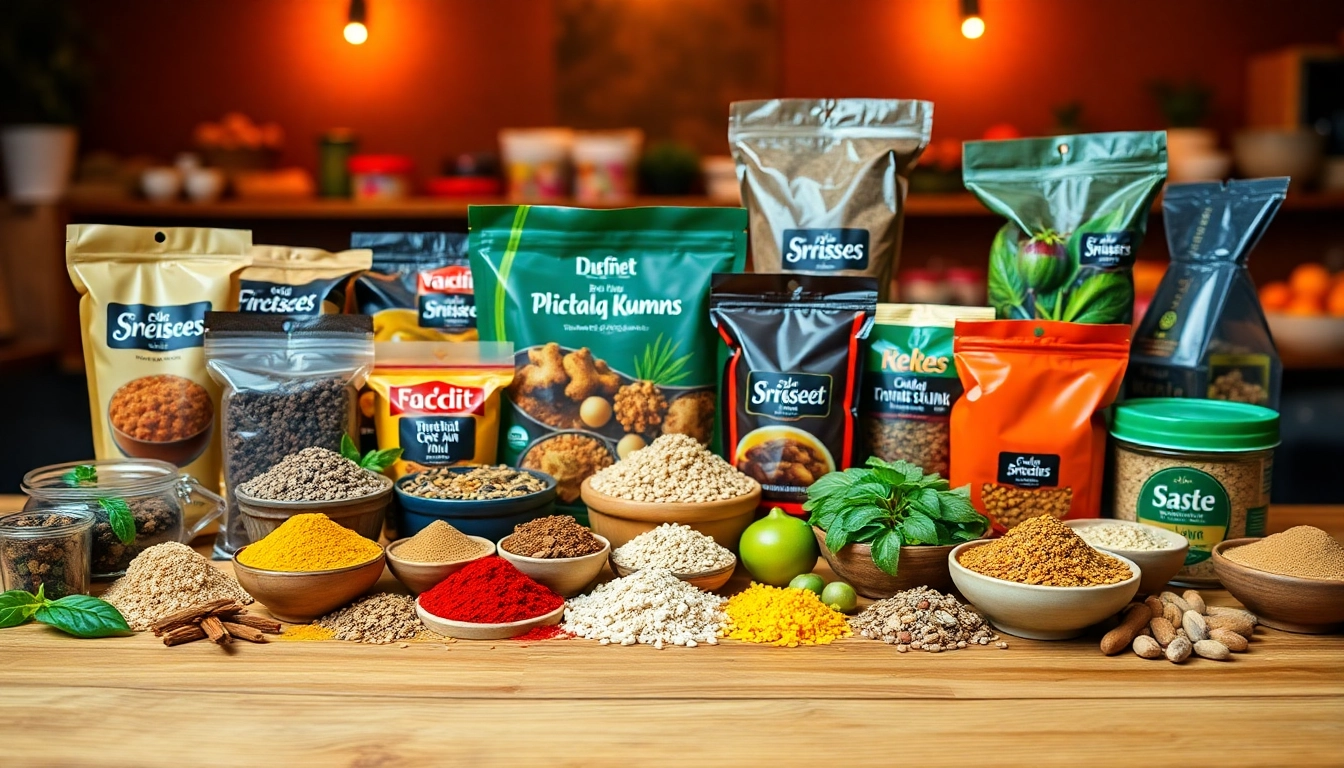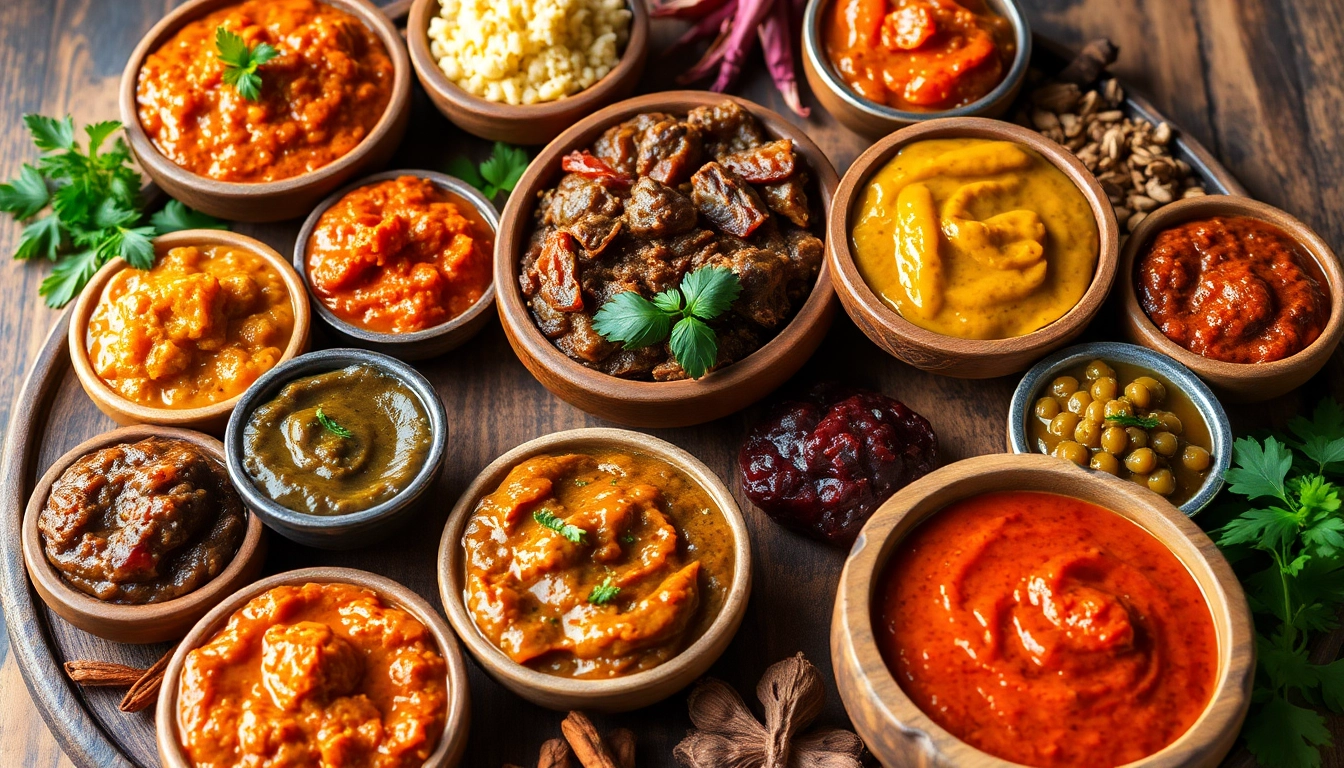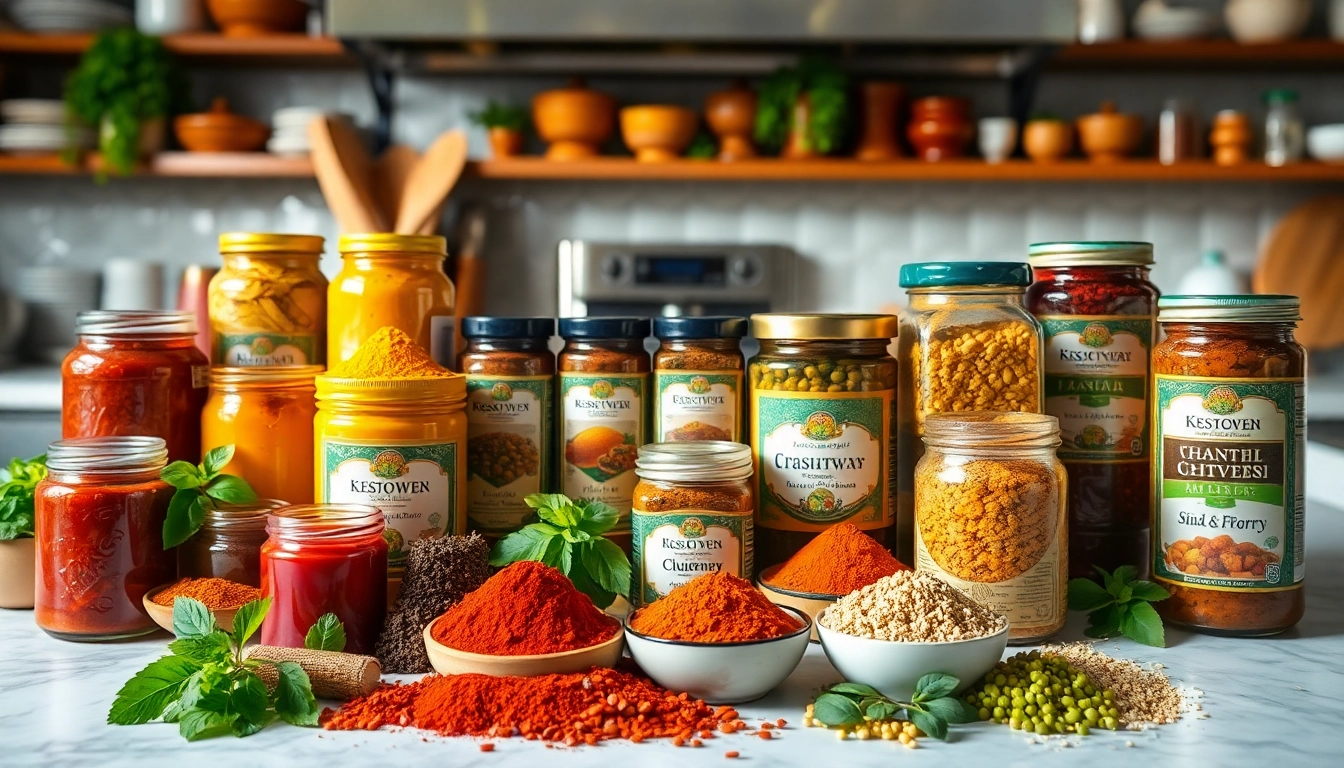Understanding the Role of a Leading Food Product Manufacturer and Exporter
Overview of Food Manufacturing and Exporting Processes
The foundation of a successful food manufacturing enterprise lies in meticulous processes that ensure quality, safety, and consistency. As a manufacturer, suppliers, exporters, and wholesalers of diverse food products, Spice Nest exemplifies excellence through a comprehensive approach to processing, packaging, and distribution. Manufacturing begins with sourcing raw materials such as whole spices, herbs, or dehydrated vegetables, emphasizing organic and quality standards. These ingredients undergo precise cleaning, cutting, grinding, or blending based on product specifications. For exports, compliance with international standards such as HACCP, ISO, and FSSAI certifications is crucial to meet the stringent requirements of global markets.
Importantly, this process integrates advanced machinery and technology, enabling large-scale production without compromising on quality. Automation in packaging, labeling, and quality control ensures uniformity, which is vital in establishing trust with international clients. Exporting further involves navigating complex logistics frameworks, choosing reliable freight services, and adhering to regulatory documentation like phytosanitary certificates, health certificates, and customs clearances. Synchronizing these elements with robust supply chain management positions companies like Spice Nest as leaders in the competitive global food industry.
How Quality Assurance Ensures Product Excellence
Quality assurance (QA) is the backbone of maintaining consumer confidence and fulfilling regulatory standards. For a company like Spice Nest, QA extends beyond basic inspection to encompass comprehensive quality management systems (QMS). This involves rigorous raw material selection, regular testing for contaminants, heavy metal traces, pesticide residues, and microbiological safety. Modern QA practices leverage tools like HPLC, GC-MS, and microbial testing instruments to ensure product purity and authenticity.
Consistency in flavor, aroma, and color—especially critical in spices, pastes, and chutneys—is meticulously monitored through sensory evaluation and chemical analysis. Certifications such as ISO 22000 and FSSAI not only validate these standards but also facilitate smoother international trading. Continuous training of staff, implementing Good Manufacturing Practices (GMP), and establishing traceability from raw material to finished product are essential strategies that set industry-leading companies apart. Proactive quality control also minimizes recalls, wastage, and reputation risks, ultimately safeguarding brand integrity.
The Significance of Certifications & Global Presence
Certifications serve as proof of adherence to international quality and safety standards. For Spice Nest, being accredited by recognized bodies such as ISO and FSSAI underscores their commitment to excellence and legal compliance. Participations at major food exhibitions and trade shows worldwide, including Biofach and Fi Europe, not only boost visibility but also serve as platforms to demonstrate product reliability and innovation.
The global presence cultivated through consistent participation in international expos enhances networking opportunities, opens new markets, and fosters trust among overseas buyers. These engagements also provide invaluable feedback, guiding product development aligned with regional taste preferences and regulatory requirements. Consequently, certifications and a dynamic global presence enable competitive positioning, giving Spice Nest an edge over less certified counterparts.
Comprehensive Range of Food Products and Their Applications
Pure Spices: Whole and Powdered Varieties for Culinary Use
At the heart of authentic cuisine, spices are the essential ingredients that define regional flavors. Spice Nest’s extensive range includes whole spices such as black pepper, cinnamon sticks, and bay leaves, alongside powdered forms like turmeric, chili, and garam masala. These products are prized for their aroma, potency, and freshness, cultivated through controlled sourcing and cutting-edge grinding technology.
Chefs and home cooks utilize these spices to enhance curries, soups, and marinades. Whole spices preserve flavor longer, and their proper storage is critical for maintaining integrity. With strict quality checks, Spice Nest ensures that each batch delivers consistency, making their spices suitable for both domestic and international markets.
Flavor Enhancing Pastes and Chutneys for Diverse Cuisine
The versatility of cooking pastes and chutneys offers chefs quick, authentic flavor bases for various dishes. Products such as garlic, ginger, mint, and specialty curry pastes serve as fundamental ingredients in most culinary traditions. For example, their rajthani-style Chilli Garlic Chutney and Tandoori Paste are appreciated for their robust flavors, ideal for enhancing Indian, Asian, and fusion cuisines.
Advanced processing techniques preserve the natural aroma and nutritional value, ensuring the paste’s shelf stability while maintaining fresh taste. These products simplify meal preparation, reduce cooking time, and elevate the overall flavor profile of dishes.
Ready-to-Eat Food Products for Convenient Meals
In today’s fast-paced world, ready-to-eat (RTE) products are immensely popular for their convenience and consistent quality. Spice Nest offers a spectrum of RTE options like Palak Paneer, Navratan Korma, and Dal Makhani, which save time without sacrificing taste. These products are produced under stringent hygiene conditions, sealed with protective atmospheres, and undergo sterilization processes that extend shelf life.
RTE foods, especially in urban settings and export markets, meet consumer demand for quick yet healthy meal solutions. Their popularity underscores the importance of innovation in processed food, blending traditional flavors with modern convenience.
Specialized Processing and Packaging Techniques
Maintaining Freshness in Dehydrated and Canned Foods
Preservation methods like dehydration and sterilization are vital for extending product shelf life. Dehydrated vegetables, such as toasted onion or garlic, retain their nutritional value while reducing moisture content, preventing microbial growth. Canning and sterilization further ensure safety and stability, especially for products like Tamarind slabs or canned herbs.
Modern packaging techniques, including vacuum sealing and modified atmosphere packaging, help retain flavor, aroma, and color. These methods also protect against external factors such as moisture and oxygen, which could compromise quality during transit and storage.
Innovative Packaging to Preserve Quality and Flavor
Innovative packaging solutions—like multi-layer pouches, resealable jars, and nitrogen-flushed cans—are crucial for maintaining product freshness. Spice Nest invests in state-of-the-art packaging lines that comply with international standards, thus providing customers with products that arrive in optimal condition.
Ensuring Compliance with International Food Standards
Compliance involves strict adherence to standards such as HACCP, GMP, and ISO guidelines. Ensuring traceability, hygienic processing, and accurate labeling are integral aspects. Regular audits and modernization of facilities enable companies like Spice Nest to meet diverse regulatory requirements across Europe, North America, and Asia, facilitating seamless export operations.
Boosting Your Food Business with Trusted Supply Solutions
Choosing Reliable Suppliers and Wholesalers
Reliable suppliers are the backbone of a sustainable food business. Companies need partners who offer consistent product quality, timely deliveries, and comprehensive documentation. Spice Nest’s reputation in the industry stems from their commitment to these principles, making them a preferred choice for domestic and international buyers.
Customized Solutions for Bulk and Export Orders
Recognizing diverse client needs, Spice Nest offers customized packaging, label design, and product formulations. Whether for retail, food service, or industrial use, tailored solutions enable brands to strengthen their market identity and meet specific consumer preferences.
Partnering for Long-term Growth and Market Penetration
Building long-term relationships with strategic partners facilitates market expansion. Leveraging their experience at trade shows and international exhibitions, Spice Nest supports clients in exploring new geographies, negotiating tariffs, and complying with regional standards. Such collaborations foster mutual growth, innovation, and brand loyalty.
Upcoming Food & Beverage Trade Shows and Opportunities
Major Food Exhibitions in India 2025-2026
Participating in prominent trade shows like Food Hospitality World (FHW), Food Ingredients India, and SIAL India provides companies like Spice Nest a platform to showcase their latest products and innovations. These events attract distributors, buyers, and industry leaders, offering networking, sourcing, and collaboration opportunities.
International Food Shows in 2024-2025
International exhibitions like Biofach (Germany), Anuga FoodTec (Germany), and Gulfood (Dubai) are strategic venues for expanding global reach. Spice Nest’s presence at these shows demonstrates commitment to quality and opens avenues for new partnerships across continents.
Maximizing Exposure at Industry Events
To maximize ROI, companies should prepare professional booth displays, product samples, and marketing collateral. Engaging presentations and informative demonstrations help leave lasting impressions. Pre-event marketing and post-show follow-ups are critical in converting contacts into long-term clients.



